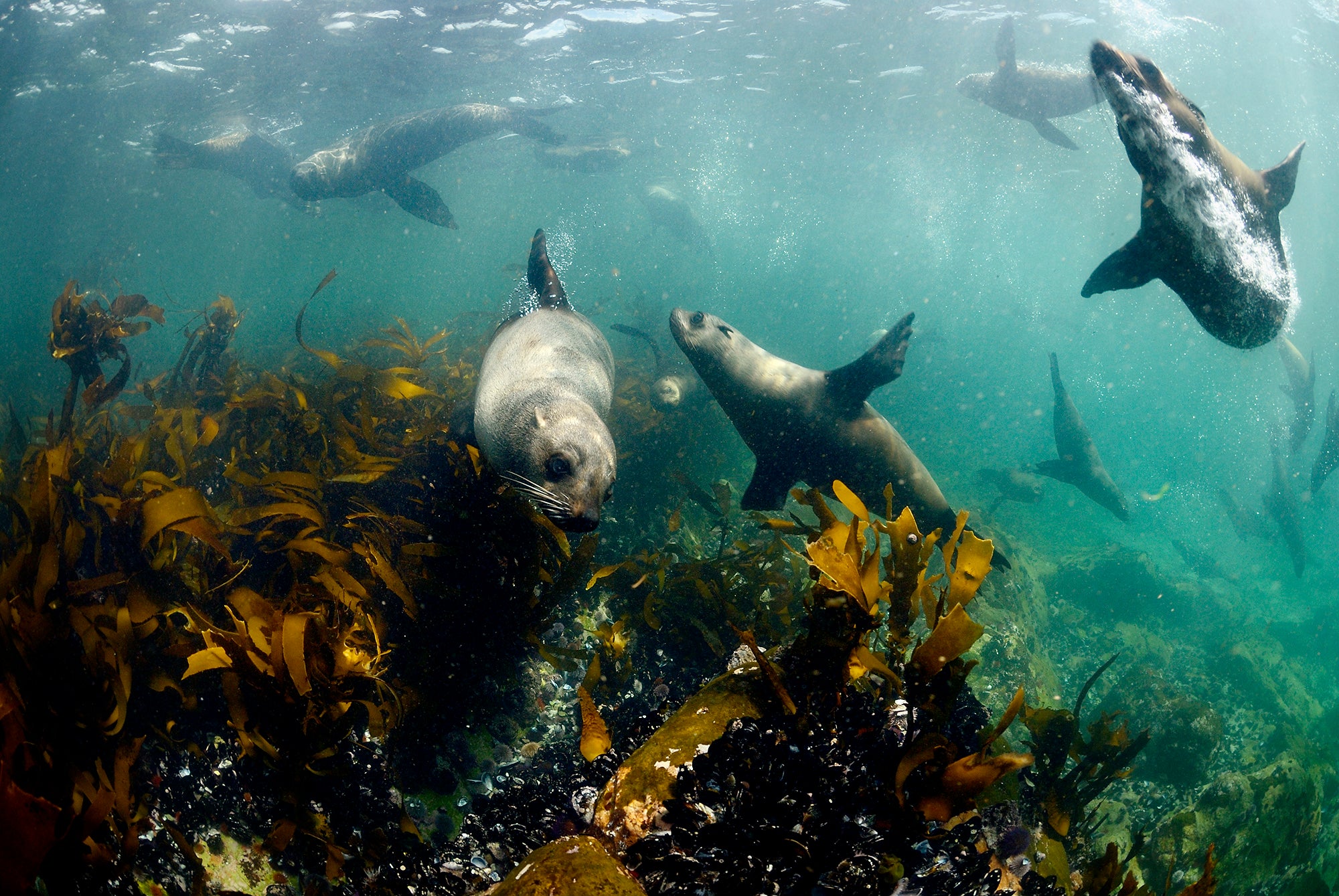Legal Wins in South Africa Protect Communities and the Environment From Fossil Fuel Expansion
Groups fighting the buildout of oil and gas projects defend climate, justice, and the rule of law.
Community and environmental advocates recently won two legal challenges against fossil fuel polluters in South Africa. These resounding victories show that despite setbacks in places like the United States, international leadership and common sense can still prevail in the global fight to curb climate change.
Earthjustice partnered with Natural Justice and the Green Connection on behalf of coastal communities fighting a plan from Total Energy and Shell to drill multiple oil and gas exploration wells off the West Coast of South Africa, roughly between Cape Town and Cape Agulhas. This region’s unique, ecologically rich, and diverse marine and coastal ecosystems not only provide habitat for numerous species but also support the cultural traditions and livelihoods of the many communities living along the coast. These communities are deeply concerned about the risks of oil spills from the exploration wells, which could reach the shoreline in as little as half a day, depending on weather conditions and the season.
In a landmark decision in August, the Western Cape High Court set aside the project’s environmental authorization, effectively halting the project and protecting 10,000 square-kilometers (3,861 square-mi) of open ocean from the risk of catastrophic oil spills and habitat destruction that would devastate marine species. This case has had an immediate impact because the Minister paused consideration of all other oil and gas projects until the government’s appeal of this case is decided, which could take up to six to eight months. And if this case is upheld on appeal, it is likely that it will send all the pending oil and gas applications back to the drawing board.
The court’s decision was a powerful rebuke to the companies and the government. First, it found that the project proposal failed to assess the cultural and economic impacts of a catastrophic oil spill on communities, which violated South Africa’s environmental review law and regulations. The court also ruled that the company’s proposal failed to consider transboundary impacts on Namibia from an oil spill.
And importantly, the court held that only considering the climate impacts of exploratory drilling, without considering the impacts of full-scale production drilling, was unlawful. The court agreed with our partners that exploration and production are inherently intertwined, noting, “[t]here would be no point in conducting an exploration activity unless an entity hoped to proceed to the next phase of production.”
Another decision took the government to task for failing to adequately account for the harms caused by fossil fuels: the Supreme Court of Appeal of South Africa, the country’s second highest court, handed our partners Natural Justice, South Durban Community Environmental Alliance, and groundWork a critical victory rejecting a proposal to build a massive 3000 MW gas power plant in Richards Bay. In South Africa’s first ever legal challenge against a gas power plant, the court set aside the power plant’s environmental permit. This requires Eskom, South Africa’s state-run utility monopoly, to start from scratch if it wants to advance this ill-conceived project.
The court found that the government and Eskom should have considered renewable energy alternatives to the proposed power plant and that “the preferred alternative must be the final choice after comparing the social, environmental, technical, and economic impacts of all the considered options” with sustainable development remaining the goal. The court also found that the government and Eskom failed to assess the cumulative impacts of extraction and transportation of the gas supplying the power plant, and that the public was denied adequate opportunities to participate in the environmental authorization process.
This case could not have come at a more opportune time, as there are more than a dozen gas plants proposed across South Africa, and we plan to support our partners to hold the government and Eskom accountable the impacts of this gas build-out.
Earthjustice proudly supported our partners in developing their legal arguments and look forward to continuing our work together to guarantee the right to a healthy and safe environment in South Africa, including the right to safe, clean, and affordable energy.
The International Program partners with organizations and communities around the world to establish, strengthen, and enforce national and international legal protections for the environment and public health.
